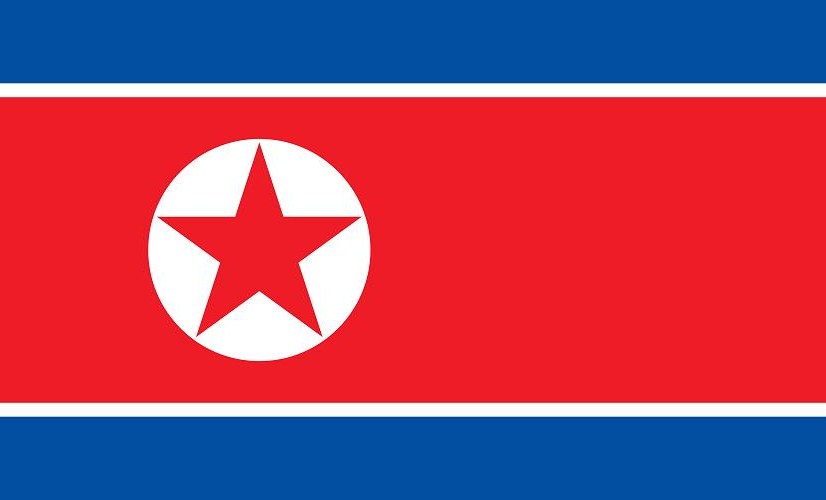28 June 2018
Three Emperors
A round of applause.
By Neil Tidmarsh
 Ever been to Pyongyang? No, me neither. But we can imagine what it looks like, can’t we? Dark, grey, oppressive, run-down…
Ever been to Pyongyang? No, me neither. But we can imagine what it looks like, can’t we? Dark, grey, oppressive, run-down…
Well, no, it’s not like that, apparently. Quite the opposite, in fact.
The city’s tower blocks are painted in bright pastel colours. Delicate pinks and soft greens; vivid reds and blues and yellows. Look out from the top of the Juche tower, and you’d think that a cheerful toddler had been busy laying out his plastic toy bricks in neat and tidy rows far below. The proof is in photojournalist Oliver Wainwright’s book Inside North Korea, just published by Taschen and featured in The Times Magazine last week.
Three years ago, Kim Jong-un vowed to build “a socialist fairyland”, and that’s more or less what Wainwright found, if you put the accent on “fairyland”. It was like “walking into a Wes Anderson film set”, he says, describing “the surreal feeling” of discovering this bright and shiny world of new hotels, theme parks and leisure centres all decorated inside and out in sweetie-shop colours. He coined the term “kindergarten kitsch” to nail its aesthetic.
Never mind his success in developing a nuclear arsenal, has Kim Jong-un achieved every Big Brother’s ultimate ambition – to build the perfect city for all the little brothers and sisters he’s watching over so carefully, a world where they’ll never have to grow up but will remain safely infantilised for ever? That may be western capitalism’s ambition, too, but it seems that North Korea’s regime is way ahead of us.
Wainwright’s photos are as much of a revelation as President Trump’s “Boy, look at that beach! They have great beaches!” The Wonsan Coastal tourist zone – which embraces the three-mile Myongsasipri beach and oak woods and pine forests and summer temperatures in the 30’s – is due to be completed (on Kim’s orders) in a year’s time. Tourism does already exist in North Korea: Kim opened a ski resort at Masikryong five years ago, and last week civilian flights began to operate from Pyongyang to the Wonsan coast. About 100,000 (mostly Chinese) tourists visit North Korea each year. But Kim plans to increase that number into the millions over the next few years.
President Putin, of course, has just realised such plans, with Russia hosting the 2018 World Cup, so far successfully, and welcoming millions from around the world with open arms. Here again, a lot has to be said for absolute power. In Russia, even the soccer hooligans are obedient members of the state. Not only are they organised along professional lines with military discipline and a serious dedication to martial arts training (a shameful betrayal of the activity’s strict amateur ethos?), they have become part of the political establishment (a strange misunderstanding of the activity’s essential non-conformist values?); a recent article by Simon Parkin in The Guardian outlined the links between Russian hooligans’ ‘firms’ and Russia’s political parties, and suggested that membership of a firm can open doors into a career in politics. This summer the regime told the hooligans not to cause trouble, and told the rest of the world that there would be no trouble, and lo and behold there has been no trouble.
And now it appears that there may soon be a third emperor on the scene. Last weekend President Erdogan won the presidential elections, and his AKP (with coalition partners MHP) won a majority in parliament. These were no ordinary elections. They followed on Erdogan’s recent victory in the referendum which gave him the power to change the constitution; he wants to replace the current parliamentary system with a new presidential system. Now that he has won another term as president he can begin to make those changes. The position of prime minister will be abolished, and the president will hand-pick the cabinet, sign-off the laws and be able to dissolve parliament.
No one can say that he hasn’t worked hard for his victory. One of his election pledges promised free cake in new public tea houses. He secured 181 hours of coverage on state media (his main rival was given less than 15 hours). Laws were recently passed to allow polling stations to be moved and for policemen to attend them, and to ensure that the government could appoint the chairmen of the ballot-box committees that initially count the votes. About 160 opponents have been jailed. Critical journalists have been prosecuted and unsupportive media outlets closed down. There were violent incidents during the election and allegations of vote-rigging after it (as there were in the referendum – the election board changed the rules after voting closed).
At one point last week it looked as if all this hard work might have been in vain. He was facing unexpectedly fierce competition from Muharrem Ince, head of the opposition CHP party, who began the elections as a virtual unknown but showed an ability to appeal to a wide cross-section of voters; polls were suggesting that he could replace Erdogan as president, and that the CHP could win a majority in parliament. It was close, but in the end Erdogan did indeed win another term with 52% of the vote, and his government retained its majority with 53% of the vote.
Fittingly, President Putin of Russia was one of the first to congratulate President Erdogan on his victory; the emperor of new Russia embracing the new Ottoman emperor. So don’t despair. If you weren’t born into the purple (as Kim Jong-un was), those two can still teach you how to win the game of thrones.


